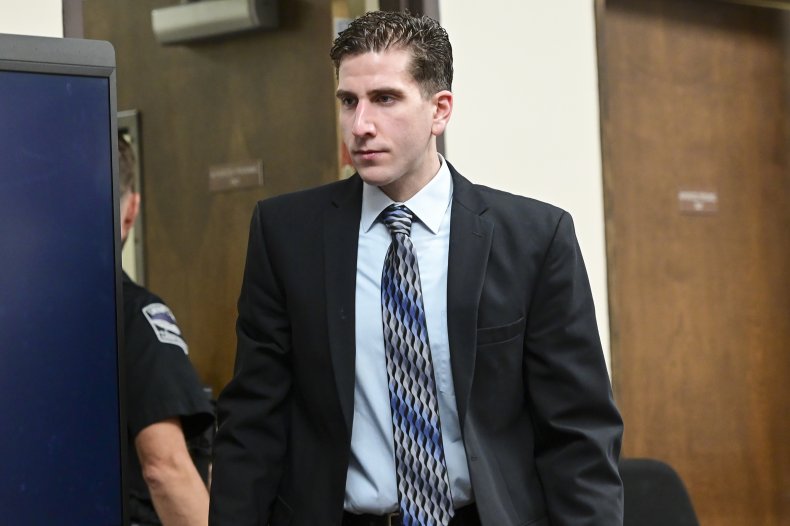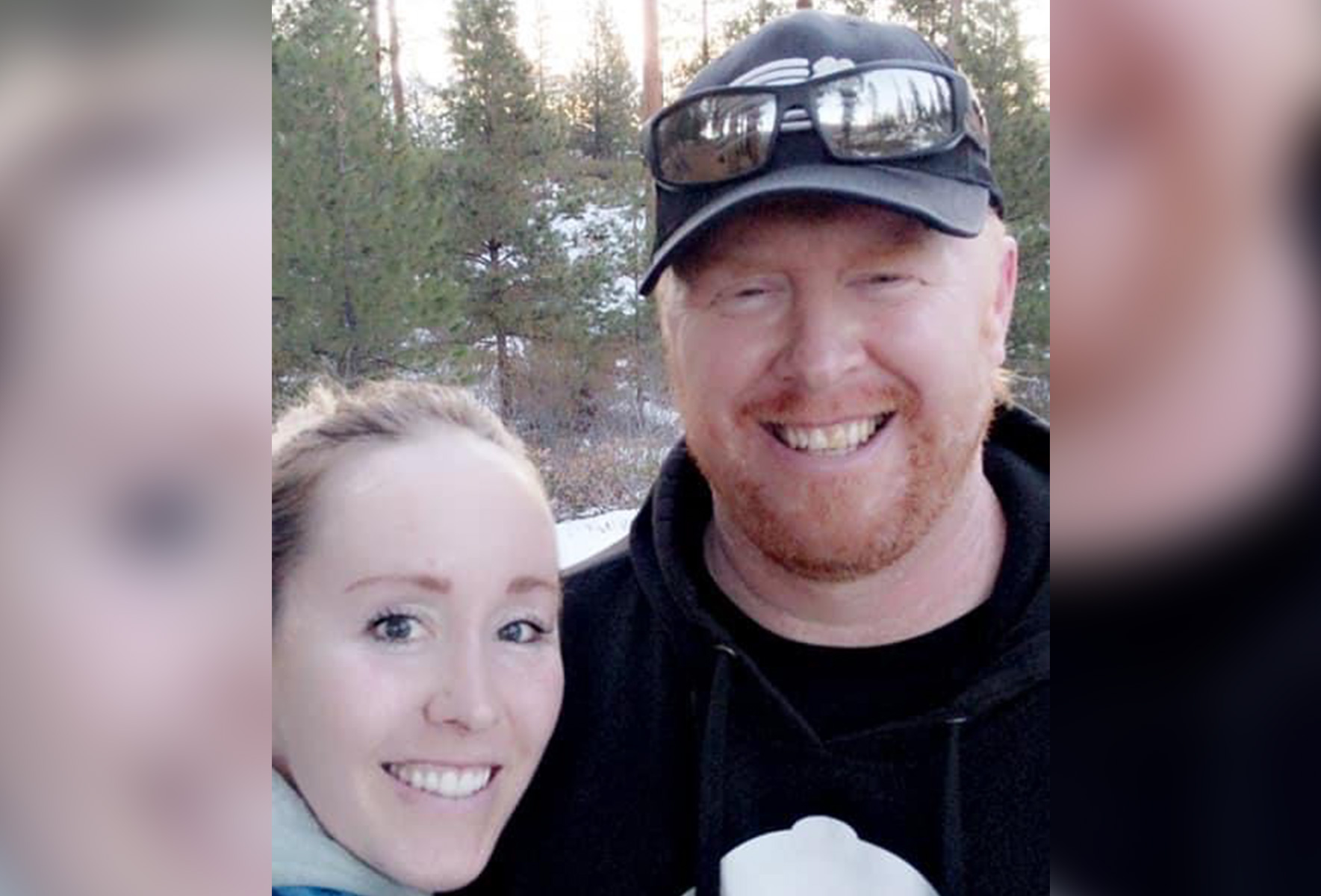Bryan Kohberger's attorney has said in a new court filing that no DNA belonging to the four University of Idaho students he is accused of murdering was found in his home or vehicle.
Kohberger is charged with four counts of first-degree murder and of burglary in connection with the stabbing deaths of Kaylee Goncalves, 21, Madison Mogen, 21, Xana Kernodle, 20, and Ethan Chapin, 20. Their bodies were found at a rental home across the street from the University of Idaho campus in Moscow, Idaho, on November 13, 2022.
At the time of the deaths, Kohberger was a graduate student studying criminology at nearby Washington State University in Pullman. He was arrested at his parents' home in Pennsylvania on December 30. He stood silent at his arraignment last month, prompting the judge to enter not-guilty pleas on his behalf.

A trial has been scheduled to begin on October 2, though legal experts say it could be delayed. Prosecutors have yet to reveal if they intend to seek the death penalty.
Earlier in June, prosecutors filed a motion for a protective order, seeking to protect from disclosure information related to the use of investigative genetic genealogy in the case. In the filing, they said investigators used it to hone in on Kohberger as the suspect and that his DNA is a "statistical match" to DNA that was on a knife sheath found at the crime scene.
In a Friday filing objecting to the state's request, an attorney representing Kohberger wrote that another area of the investigation involved a white sedan seen near the crime scene. A probable cause affidavit unsealed in January said that investigators traced a vehicle that was seen speeding away from the crime scene to a white Hyundai Elantra registered to Kohberger.
"It remains unclear what the police first relied on in focusing their investigation on Mr. Kohberger," Jay Weston Logsdon, an attorney with the Kootenai County Public Defender's office, wrote in the recent filing.
"No matter what came first, the car or the genetic genealogy, the investigation has provided precious little. There is no connection between Mr. Kohberger and the victims. There is no explanation for the total lack of DNA evidence from the victims in Mr. Kohberger's apartment, office, home, or vehicle."
Logsdon wrote that "through the lack of disclosure and their motion to protect the genetic genealogy investigation, the state is hiding its entire case."
The filing also noted that lab analysts were aware of DNA from two other unidentified males in the house where the murders occurred, as well as DNA belonging to another unknown male on a glove found outside.
Neama Rahmani, a former federal prosecutor and president of West Coast Trial Lawyers, told Newsweek that "if what the defense is saying is true, that poses a problem for the prosecution."
Rahmani said: "You would expect a lot more DNA than a single source at such a gruesome crime scene. The defense will argue that the testing is inaccurate, or the DNA was transferred, and that the DNA of three other men was present at the house."
"One would also expect the DNA of the victims to be found in Kohberger's apartment, home, office, or vehicle. That would be the smoking-gun evidence the prosecution wants to convict Kohberger and put him to death."
The lack of DNA evidence at these locations could point to "sophistication" on the suspect's part, Rahmani said. "It will also force the state to rely heavily on other types of evidence, including video and cell phone," he added.
Michael McAuliffe, a former federal prosecutor and elected state attorney, told Newsweek that Kohberger's defense team "is pushing for disclosure of the original reasons why Kohberger became the focus of the investigation and the methodology of the DNA sampling and use of databases to narrow the testing to Kohberger."
He added: "The issue of a protective order is being used to poke and prod on the potentially most devastating evidence against the defendant—his alleged DNA on a distinctive item in the victims' home—and the scene of the murders. It's paramount that the defendant dissemble the DNA evidence in the case. The litigation over the discovery process is just one vehicle to do so."
On Friday, 2nd District Judge John Judge denied a request from around two dozen news organizations to lift a gag order in the case, but did significantly narrow it.
The revised gag order, formally called a "nondissemination order," prohibits any attorneys representing parties, victims or witnesses in the case from making statements that could have a "substantial likelihood of materially prejudicing or otherwise influencing the outcome of the case."
The attorneys are allowed to comment about information contained in the public record, procedural issues, scheduling and make statements that a lawyer would reasonably "believe is required to protect their client from the substantial undue prejudicial effect of recent publicity not initiated by the lawyer or the lawyer's client."
They are barred from sharing opinions about the guilt or innocence of a defendant outside of the courtroom, the identity or nature of evidence expected to be presented at trial or information that they know wouldn't be admitted in court. They also cannot speak about the character or credibility of a witness, expected testimony or the likelihood of a plea deal.
Newsweek has contacted Kohberger's defense team for comment via email.








